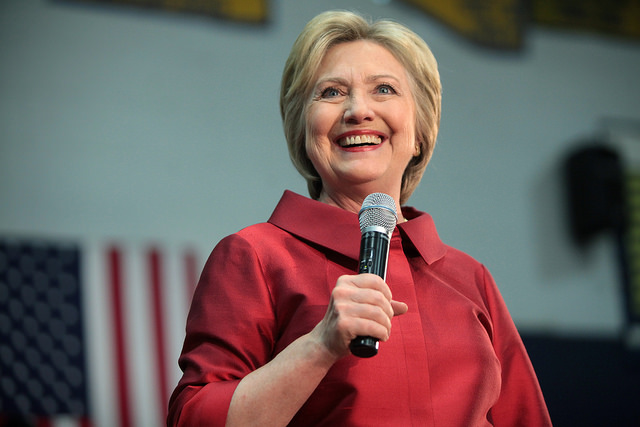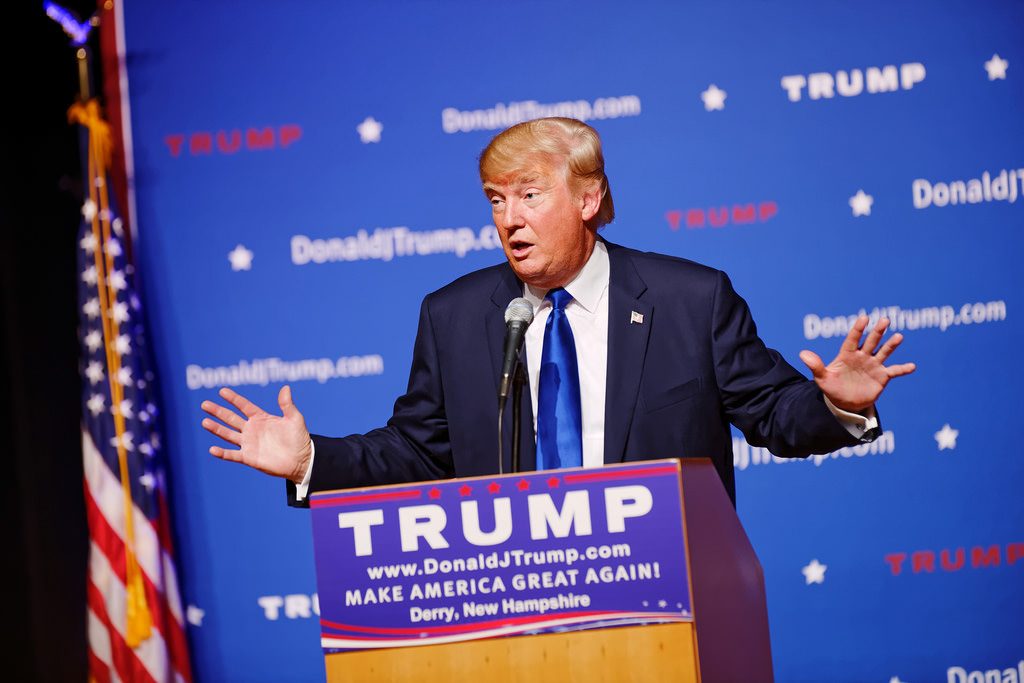
U of C political science post-doctoral fellow talks U.S. presidential election
By Josh Harkema, November 1 2016 —
The current United States presidential election has been one of the most controversial in recent memory. Interest in the race between Donald Trump and Hillary Clinton — which will conclude on Nov. 8 — has spanned nations worldwide. Canadian university student enthusiasm in the election has also been unprecedented and even led to recent altercations involving Trump campaign material at both Mount Royal University and the University of Calgary.
To better understand why the election has garnered such intense interest among students, the Gauntlet spoke to Philip Chen, a post-doctoral fellow in political science at the U of C who specializes in American media and politics.
Gauntlet: Do you think Canadians are more interested in this election than previous American elections?
Philip Chen: I’m not sure that is the right word. What I would say is that human psychology craves novelty and both Donald Trump and Hillary Clinton are certainly novel candidates. We have both the first female major party nominee as well as a nominee who has sort of broken many of the traditional rules of political campaigning. I’m not sure that Canadians are necessarily more interested in this election, but it absolutely makes sense that they are intensely interested in it.

Courtesy Gage Skidmore
G: Why were some Canadians so strongly invested in the outcome of this election that they have even been involved in physical confrontations?
C: I would argue that it is likely two different forces are at play here. First is simply the natural association between political parties across country lines. So, the Republican party — and Donald Trump as the standard bearer — has a natural connection to the Conservative party and conservative ideology [in Canada], even if policies themselves are not particularly well-aligned between the two parties.
So there is absolutely this kind of [symbolic] connection between, say, the Conservative party and the Republican party and Donald Trump [and] similarly between either the Liberals or the New Democratic Party and the U.S. Democratic party and Hillary Clinton. There’s already the existing strong psychological connections and symbolic connections between the two parties.
In addition to that, we end up with a candidate on the Republican side who has employed some highly unusual rhetoric for a major party candidate. We haven’t really seen this type of “us versus them” rhetoric since the 1960s and George Wallace in the U.S.. What we have is a candidate that is playing on xenophobic fears, but also undermining the results of the election, which can spur violence.
We’ve seen violence at rallies in the U.S. and that can spill over [into Canada]. Especially considering the amount of media coverage that Donald Trump and Hillary Clinton get in the U.S. and how much of that media coverage spills over into Canada by nature of a shared border.
G: Will a victory by either candidate have any effect on Canadians?
C: Absolutely, the U.S. election will have an effect on Canadians. It will have an effect on most of the world. The U.S. economy is one of, if not the strongest, influence on the global economy. Anything that influences the U.S. economy and the uncertainty that comes with a new president will influence the U.S. economy and in turn, the global economy.
I would argue that a Clinton win probably affects Canadians less because she is representing a continuation of the existing policy for the most part. A Trump win signals a shift, and a shift generally alters markets and ultimately the U.S. and Canadian economies.
There’s other ways that [either candidate] can influence things, especially in Alberta. We might think of things like the Keystone XL pipeline, where we have Trump who is supportive of it and Clinton who is not. We might think of something like the Trans-Pacific Partnership (TPP)where both of them have come out against it, while President Obama is for the TPP. So, there’s different ways that trade and energy policy may influence Canadians.

Courtesy Michael Vadon
G: If Trump wins, how could Canadian university students be affected?
C: I think it’s hard to say that whether Trump or Clinton wins that students will be affected directly. Obviously neither one of them has influence over Canadian education policy. Neither candidate has been particularly up front about what their plans for immigration or green cards will do for Canadians students who want to travel and do study abroad or a semester in the U.S. Neither one has been particularly upfront about policies on that.
My baseline assumption is that those programs will not be particularly affected by either one of them winning. Students — as far as the experience they are having on campus and the potential to go to the U.S. and study there — are probably not going to be affected greatly by either candidate winning.
That doesn’t mean students shouldn’t be concerned. I want to make that clear. I think that a Trump presidency or a Clinton presidency both do certain things for the global economy and the Canadian economy.
G: If Trump supports the Keystone pipeline, that benefits petrochemical engineering graduates, right?
C: Yes. Although you have to balance Trump’s support for Keystone with his statements that he would like to increase coal and decrease the reliance on natural gas. That’s sort of a tricky line to walk on energy policy, but more importantly we have to balance whether he’s serious about reducing U.S. involvement or even eliminating the North American Free Trade Agreement (NAFTA).
If we’re talking about free trade between the U.S., Canada and Mexico we have to remember that the U.S.’s number one trading partner isn’t Mexico and isn’t China — it’s Canada. So if we’re concerned with the free flow of goods from Canada to the U.S. and the U.S to Canada, including oil through the Keystone pipeline, then we should be concerned perhaps about Trump’s rhetoric [surrounding] free trade.
G: Is Trump even capable of stopping Chinese, Mexican or Canadian imports?
C: Not particularly. The president doesn’t have this sort of unilateral power. It’s unlikely that he will just be able to leave NAFTA – there’s too much support for free trade among both Democrats and Republicans in Congress [for Trump to] actually be able to do anything like that.
In that case you just have to say if you assume that Trump would not be able to actually shut down trade between the U.S. and Mexico, the U.S. and Canada and the U.S. and China then yes, supporting the Keystone XL is likely a way to improve the job market in Alberta, especially moving oil from Canada through the U.S.
Edited for clarity and brevity
